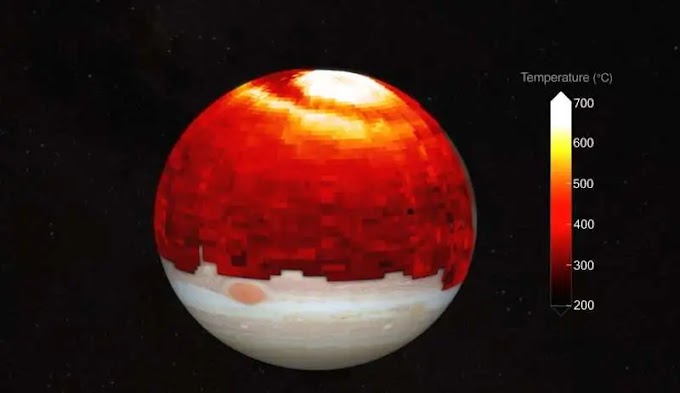Is Jupiter is getting Hotter?
What is causing Jupiter's rising temperatures?
Jupiter is currently experiencing a rise in temperatures, but scientists are not sure why. One theory is that the planet's core may be cooling down, which would cause the atmosphere to heat up. Another possibility is that the sun's radiation is causing Jupiter's atmosphere to warm up. Regardless of the cause, Jupiter's rising temperatures are a mystery that scientists are still trying to solve.
The effects of Jupiter's rising temperatures
A recent study found that Jupiter's atmosphere has higher temperatures than models predict. The Japanese Aerospace Exploration Agency collected information from high above the planet, reaching hundreds of degrees hotter than models predict..Due to its distance millions of kilometres from the sun, the Jupiter planet only receives 4% of the amount of sunlight compared to earth.Theoretically the temperature of Jupiter's planet should be 70 degree Celsius but it is found that the temperature is more than 400 degree Celsius.
The temperatures on Jupiter are rising, and scientists are not sure why. The most likely explanation is that the sun is heating up the planet as it moves closer to the star. However, some scientists believe that Jupiter's internal heat may be to blame.
Jupiter is not the only planet experiencing rising temperatures. Mercury, Venus, and Mars are also seeing an increase in temperature. This could be due to a number of factors, including changes in the sun's output or the planets' orbits.
The effects of these rising temperatures are not yet known, but they could be damaging to the planets' atmospheres and ecosystems. If the trend continues, it could eventually lead to the loss of water from Jupiter's atmosphere and a decrease in its protective ozone layer.
How Jupiter Temperature Could Impact Earth
Jupiter's atmosphere is composed primarily of hydrogen and helium with traces of methane, ammonia, water vapour, and other gases. The atmosphere contains bands of clouds that rotate around Jupiter's equator.
Jupiter's temperature could impact Earth because it has a large gravitational pull on Earth and other planets in our solar system. Jupiter's weather and climate can also affect Earth because of its size, proximity, and gravitational pull.
Conclusion
There is still much debate surrounding the issue of whether or not Jupiter is getting hotter, but the evidence seems to be pointing in that direction. If this trend continues, it could have major implications for the planet and its inhabitants. We will continue to monitor the situation and update this article as new information becomes available.






0 Comments
I love to read your comments. Please comments